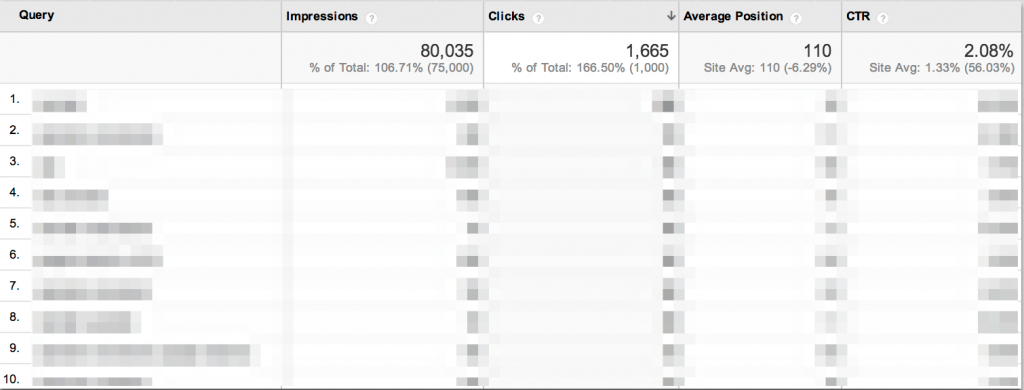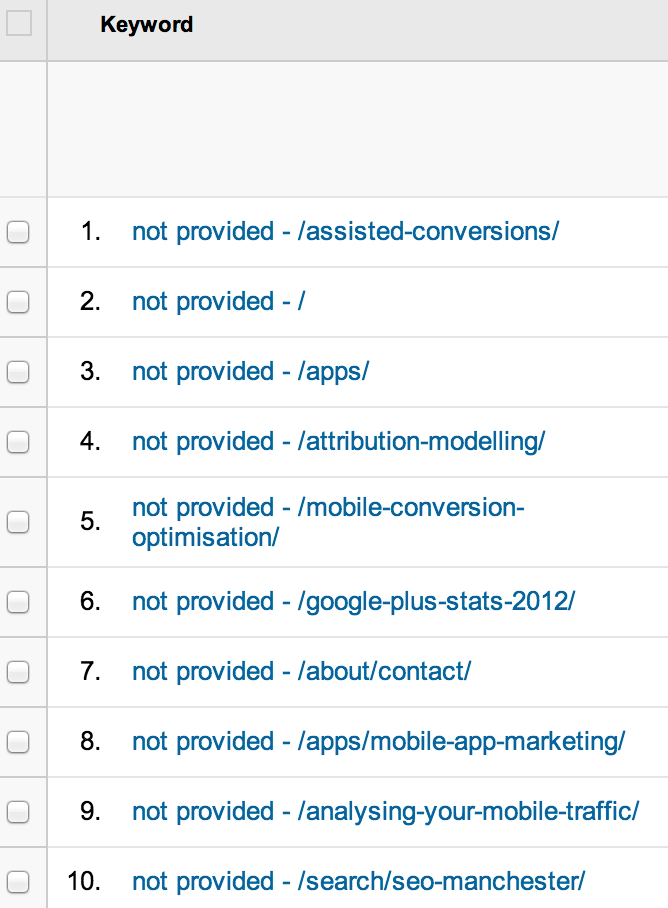100% (Not Provided) Isn’t the End of the World

Quick! Stock up on tinned food and make your way to the bunker. 100% (not provided) data is landing.
When I woke up yesterday morning and checked Twitter (yes, I do that before I get out of bed. Don’t judge me), I noticed a lot of people talking about this article on Search Engine Land.
A quick read confirmed that Google is indeed securing all searches imminently, meaning keyword data pertaining to visits from Google organic search will soon show in your Google Analytics account as (not provided).
Since the whole (not provided) thing started back in October 2011, we’ve been gradually losing more and more data of this nature. I whinged about it. And then I whinged about it some more.
But, as with everything I whinge about, I’ve pretty much gotten over it now.
It’s Not the End of the World
100% (not provided) is annoying. Really annoying, actually. But it’s not the end of the world. It doesn’t change your campaign’s objectives. And it doesn’t change how you go about your work.
What it does change is how your report on your work and measure progress.
Key things you can still report on:
- Visits generated through organic search
- Pages on your site generating organic visits
- Organic sales
- The landing pages that are pulling in converting organic visitors
- Website conversion rate and organic conversion rate
- Revenue from organic
- Rankings (if relevant to your campaign)
There are still several other ways to get valuable organic visitor data too:
Webmaster Tools
Webmaster tools. Hook your Webmaster Tools account up with GA (if you haven’t already) and then without even needing to login to Webmaster Tools, you can see clicks and impressions data.

Traffic from Other Search Engines
Traffic from other search engines remains unaffected. So if you get a reasonable volume of traffic from Bing/Yahoo, Yandex, Baidu or others, you can still see keywords referring traffic. So if you want to ascertain keyword specific conversion rates or similar, this can be handy.
PPC
You’re probably already using PPC data to inform and channel the SEO campaign most effectively. In the (not provided) age, it’s even more valuable.
Analytics Filters
With various Google Analytics filters, you can present other relevant data in a nice, clear and insightful way. My personal preference is an Analytics filter that breaks out all (not provided) keywords into the landing pages onto which people arrive at the site and puts these links into the keyword list as below:

So, although I can no longer see keywords referring traffic, I can see the landing pages that drove all my (not provided) visits and that gives me some insight as to the sort of keywords likely to be sending people my way.
That and a few other options are elaborated on in this Econsultancy post.
So yes, it’s annoying. But it’s not the end of the world. It doesn’t have to change all that much. We just have to work a bit harder for our insight.
Put the tinned food down and step away from the bunker. The world isn’t ending after all.

Get 123 pages of expert advice straight to your inbox.
-
Apps (46)
Content Marketing (67)
Digital PR (1)
Integrated Marketing (3)
Multi Screen (12)
News (99)
PPC (2)
Search (120)
Tecmark (70)
Uncategorized (2)

About the Author


